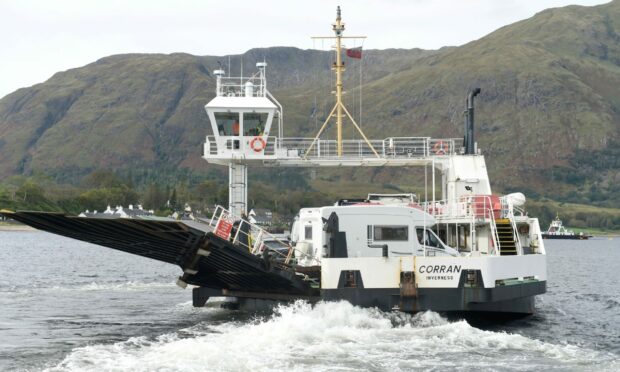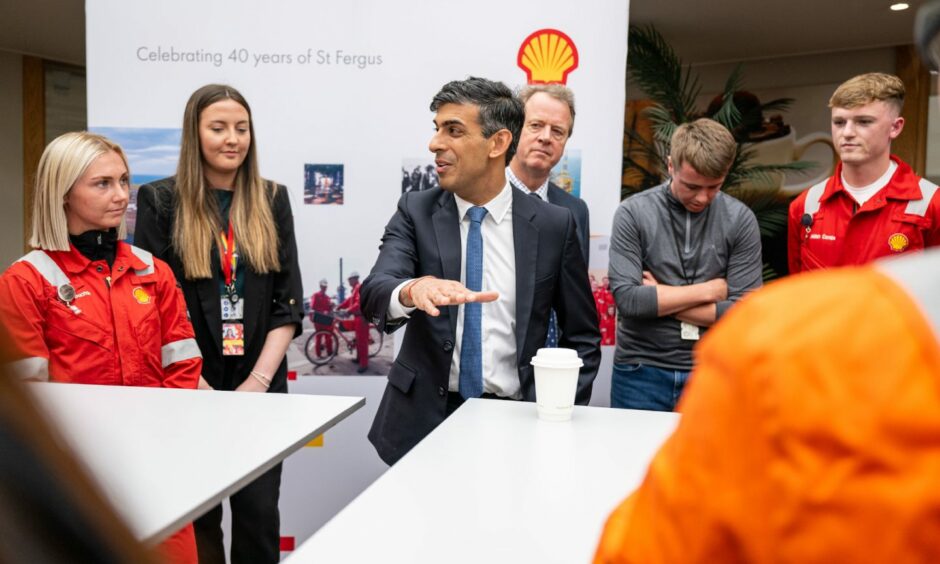The struggling Corran Ferry will get £20 million in a budget package which also boosts spending across the Highlands and Aberdeen.
Chancellor Jeremy Hunt announced the measures in his autumn statement in Westminster on Wednesday.
It includes money for the short ferry link – between Nether Lochaber and Ardgour – which is frequently withdrawn from service.
Funds which were previously supposed to be dedicated to improving broadband, as part of the Inverness and Highland City Region Deal, will be used to improve the link instead.
The two vessels which operate the short route have regularly been out of commission, leaving the crossing’s future in limbo.
That’s very encouraging from our point of view. The community needs to see a reliable ferry service.
– Fergus Stokes, Ardgour Brewery.
Cash being redirected to the ferry service will now be used to improve infrastructure next to the water in the hope of reducing disruption.
Fergus Stokes, owner of Ardgour Brewery, relies on good local connections and hopes this might lead to the necessary funding for an electric boat.
‘Better than bridge or tunnel’
Responding to the news, he told the P&J: “That’s very encouraging from our point of view. The community needs to see a reliable ferry service.
“We’re not bothered about what it’s fuelled by. If the money can be found to fund the electric project, we’ll be delighted.
“It’s a better solution than a bridge or tunnel, because we don’t think the infrastructure is there to support the amount of traffic.”
Highlands and Islands MSP Jamie Halcro-Johnston said: “This will provide some much-needed encouragement for those local residents and businesses who rely on the Corran Ferry.”
Money for Western Isles and Argyll
It comes as Mr Hunt announced another wave of Levelling Up funds for rural Scotland, just days after Elgin was given money.
Western Isles and Argyll & Bute councils will receive £20 million each in the latest round of awards from the treasury. The councils will now discuss how to use the money in further talks with government.
In a budget which saw national insurance slashed and business taxes cut, the chancellor also revealed plans to bolster low-tax freeports and investment zones.
Funds will be given to Aberdeen’s new investment zone, a project which business leaders hope will make up for missing out on tax breaks as a freeport.
The money for the investment zone will be doubled to £160 million.
The Inverness and Cromarty Firth freeport – announced in January – will also benefit from similar tax breaks for the same period.
Freeports and investment zones will function as special low-tax economic areas, but critics warn they will stop businesses from having to pay their fair share.
Meanwhile, the Chancellor signalled support for a carbon capture scheme near Peterhead which was given the green light by Prime Minister Rishi Sunak in summer.
The carbon storage project will receive money from a £960 million green energy package, which will also go toward supporting offshore wind projects.
Windfall taxes and North Sea profits
Banff and Buchan MP David Duguid said the chancellor’s autumn budget would provide a boost for the north-east economy.
He said: “The chancellor’s extension of financial incentives for investment zones is another milestone for north-east Scotland which was selected earlier this year.”
But industry leaders in the region were disappointed by the lack of any immediate plans to scrap the windfall tax on fossil fuel firms.
The energy levy, introduced by Mr Sunak when he was still chancellor, takes more money from multinational companies reaping record profits in the North Sea.
Ryan Crighton, policy director at the Aberdeen and Grampian chamber of commerce, said: “Headline announcements on the doubling of investment zone packages should also be good news for the north-east.
“However, for all the positives, failure to recognise the detrimental impact the energy profits levy is having on the North Sea oil and gas sectors is a further blow.
“The windfall tax needs to go if we are to avoid a cliff-edge end to our domestic oil and gas industry.”
It comes on the day Scotland’s only major oil refinery, in Grangemouth, announced plans to cease operations in 2025.




Conversation